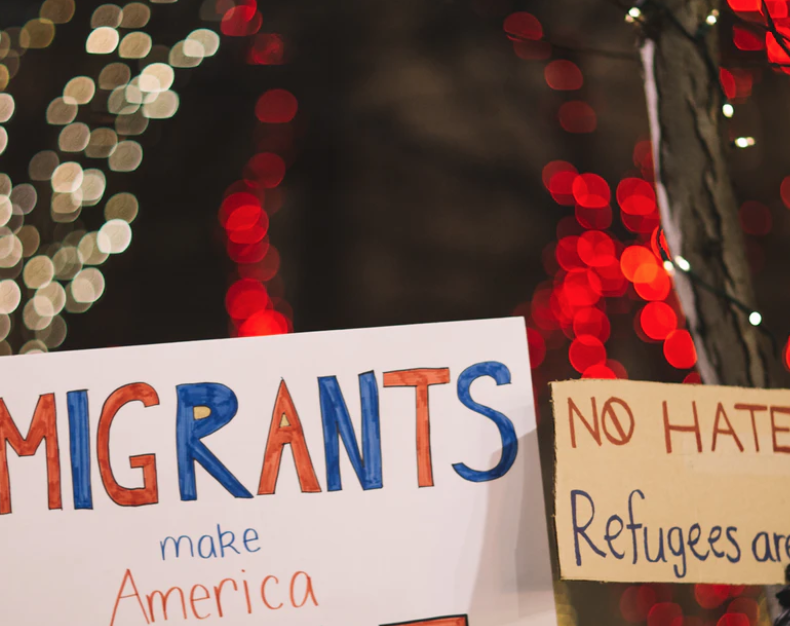By Oliver Schmidtke, Centre for Global Studies at the University of Victoria
Migration figures prominently in the political mobilization of right-wing populism. Anti-immigrant sentiments are at the very core of this actor’s rallying cry and popular campaigns. Yet, how are we to understand the link between populism and migration? Are immigration and growing cultural diversity to blame for populist forces that advocate an exclusionary form of nationalism? For instance, has the so-called ‘refugee crisis’ of 2015-16 triggered or even caused the series of extraordinary electoral achievements of the populist right? In my view, this link between populism and migration is more indirect and multidimensional in nature. Here are some ways to conceptualize this link:
Migrants as easy scapegoats: It is one of the essential tools in (electoral) politics to assign blame and, by assigning responsibility for social ills, design politics based on the exclusion of the undesirable group. In politics, this form of scapegoating works so effectively for mobilizing purposes because it allows complex issues – such as unemployment, social inequality, housing, or crime – to be addressed in a highly simplistic fashion. Ascribing blame to a particular group like migrants steers a general, unspecific sense of frustration with politics towards a concrete adversary and frames intricate political issues in a simplistic logic of Us versus Them. Migrants are an easy target for such scapegoating practices also because they have a very limited public and political voice in particular in European societies. And right-wing populists can build on latent xenophobic feelings that are deeply rooted in the historic legacy of the European nation-state and its colonial practices.
Migrants as the threatening Other: Populists need a tangible sense of who is threatening the people and their well-being. Their very political identity is organized around the image of an urgent threat directed at ordinary people. Daniele Albertazzi and Duncan McDonnell (Twenty-First Century Populism, 2008) define populism as “an ideology which pits a virtuous and homogeneous people against a set of elites and dangerous ‘others’ who are together depicted as depriving (or attempting to deprive) the sovereign people of their rights, values, prosperity, identity and voice.” The practice of depicting migrants as the ‘dangerous others’ is instrumental in providing the people with a collective identity (in the case of right-wing populism primarily defined in terms of an ethno-cultural nationalism) and identifying those depriving the ‘virtuous people’ and their community in fundamental ways. With the anti-immigrant rhetoric, the alleged threat to the wellbeing of the own community is given a face, an easily identifiable reference point for directing dissatisfaction and political aspiration.
Migrants as a tool for a mobilizing collective identity: The racialization of the non-national other is a highly productive way of political mobilization drawing on the friend-enemy dichotomy that Carl Schmitt depicted as the very essence of politics. In his book The Concept of the Political (1932: 26, 38), he describes the friend-enemy distinction as speaking to the “utmost degree of intensity … of an association or dissociation.” Right-wing populism exploits this distinction and the emotional, or even existential power it displays. In this regard, populists can challenge the often frustratingly unresponsive and stale routine of liberal democracy with an emotionally charged fight for the security, if not the survival of the own community. Migrants are indispensable for the form of identity politics based on which right-wing populism challenges traditional competitive party politics. The resurgence of exclusionary nationalism and anti-immigrant forces itself has the potential of developing into a veritable threat to the viability of liberal democracies in general and the rights of minorities in particular.
Not by accident these three interpretations focus on how populist actors use migration for their political mobilization rather on the challenges posed by migration itself. My underlying hypothesis is that the political and policy issues related to migration (security, long-term integration of newcomers, accommodation of cultural diversity, etc.) cannot explain the rise of right-wing populism. Rather, the politics of migration regularly follows a different logic. Consider the 2015/16 ‘refugee crisis’: The number of irregular border crossings has dropped dramatically and the number of asylum seekers coming to Europe has gone back to pre-crisis levels. Still, the political debate in many European countries is still dominated by anti-immigration rhetoric deliberately staged by right-wing populists to exploit a divisive issue for their political mobilization.
Are the three approaches to conceptualizing the link between migration and populism the most fruitful and relevant ones? What aspects do these three interpretations leave out? Please feel free to add to the conceptual discussion or contribute with some empirical observations.





